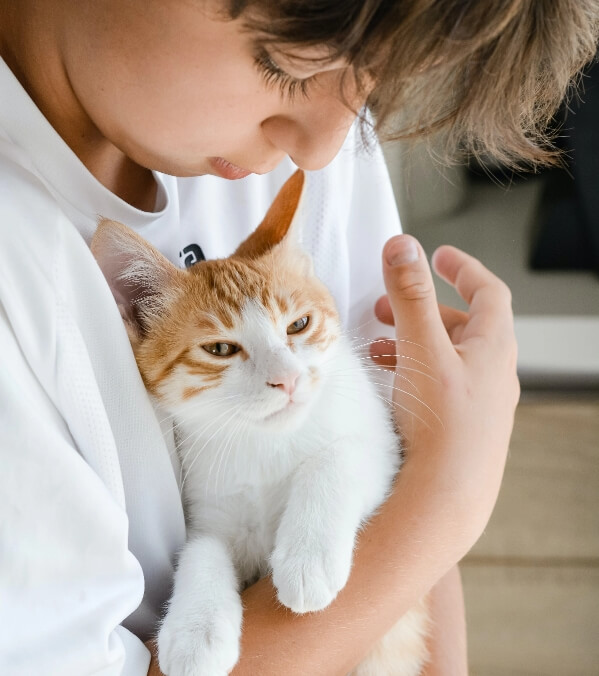About DFV

What is domestic
and family violence
This is also known as coecrive control, which is any repeated patterns of behaviour that causes you to feel controlled or dominated in a relationship. This behaviour is used to establish and maintain power and control over another, to take away their freedom and autonomy in their lives.
DFV happens in any kind of relationship- not just with husbands, wives, boyfriend of girlfriends. It also includes carer and elder abuse, and hurt and harm to extended family members.
Abuse doesn’t always involve physical violence, rather it is any behaviour that
- Causes fear
- Stops you from living as you want
- Forces you to behave in ways you don’t want
- Controls you, or makes you feel like your life is not your own
.
There are many others. If anyone is making you feel scared, worried or unsafe, it is OK to ask for help.
It is important to know that this behaviour doesn’t always stop when the relationship ends- this is often a time when the behaviour can get worse as the abusers desperately seeks to maintain their power. This is why it is important to seek help when planning to leave a relationship.
Effects on
Women
Domestic and family violence can have many effects on women’s lives in the immediate and long-term, including:
- Living in fear; unable to predict when the next incident will occur.
- Experiencing inconsistent emotions, such as fear, anger, shame, resentment, sadness and powerlessness.
- Struggling to nurture and parent their children as they would hope to.
- Low self-worth and poor self-esteem, leading to isolation from friends, family and other social connections.
- Poor mental health, sometimes leading to psychosomatic illnesses, eating disorders, insomnia, gastrointestinal disturbances or generalized chronic pain.
- Developing post-traumatic stress, which includes varying degrees of anxiety, depression, panic attacks, trouble sleeping, nightmares and hyper-vigilance.
Further information on the effects of domestic and family violence is available from the links on our contacts page.
Effects on Children
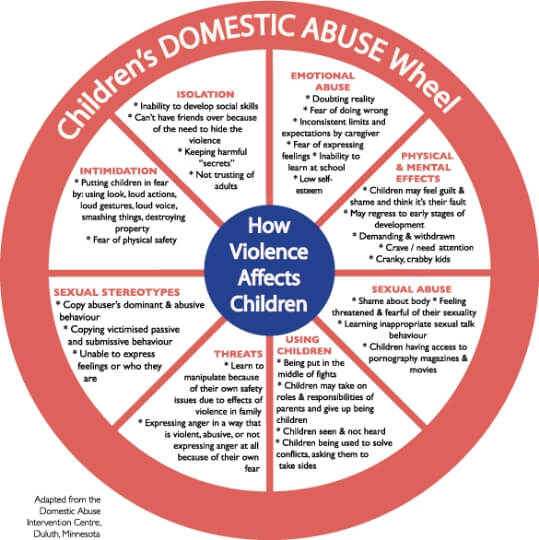
- Witness the violence, hear it in another room or witness others’ fear;
- Have to tippy-toe around an abuser to try to prevent outbursts;
- Have to comfort, clean up or take additional responsibilities for siblings or carers following violence;
- Are encouraged to join in with verbal abuse or contempt for their mother or carer;
- Cannot be cared for properly as the abuse is either directly preventing it or is causing poor mental health and exhaustion for the carer;
- Experience disrupted attachment with their mother or primary carer as infants or the normal co-regulation of emotions between a mother and infant is disrupted;
- Have an acquired brain injury from physical abuse;
- Are forced to have on-going contact with someone of whom they are scared or whose presence is a ‘trauma trigger’, following previous incidents where the children have been traumatised.
The impacts of domestic and family violence on children are complex. When children experience domestic and family violence, it can affect their behaviour, development, relationships, emotions, learning ability, cognition, and physical health. These impacts can last into adulthood.
Further information on the effects of domestic and family violence on children is available from the links on our contacts page.
Effects on Young People
Unhealthy relationships can begin early and last a lifetime. Young people can be affected by domestic and family violence at home or with partners.
Young people living in a violent home are aware of the abuse, even if it is hidden. As children grow up, they may be more likely to try to intervene in a violent incident and suffer injury as a result. Young people who have experienced violence in the home may show effects such as anxiety, social withdrawal, low self-esteem and substance abuse. Young people show a great diversity in their responses – some will ‘act out’ at school, while others will not change or will excel at school which is a safer and more predictable place than home.
It is important for young people to develop healthy relationship habits. Teens often think that some behaviours, such as teasing and name calling, are a ‘normal’ part of a relationship but these behaviours can become abusing and develop into more serious forms of violence. The risk of developing an unhealthy relationship increases for teens who:
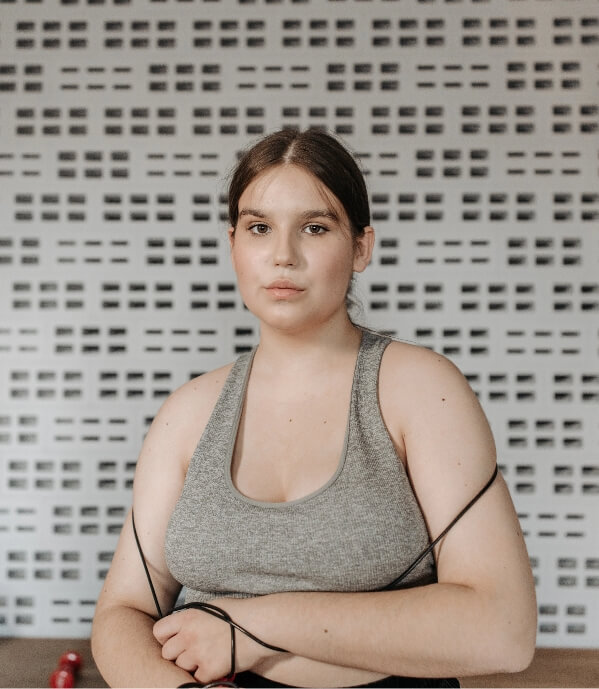
- Believe that dating violence is acceptable;
- Are depressed, anxious or have other symptoms of trauma;
- Display aggression towards peers or display other aggressive behaviours;
- Use drugs or illegal substances;
- Engage in early sexual activity and have multiple sexual partners;
- Have a friend involved in dating violence;
- Have conflicts with a partner;
- Witness or experience violence in the home.
Dating violence can be prevented when young people, families, organisations and communities work together to implement effective prevention and support strategies.
Below are some useful links for young people:
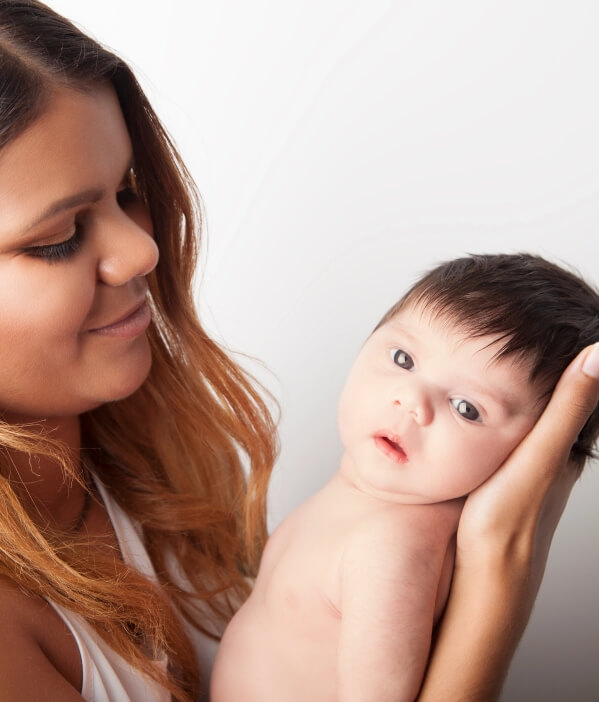
Aboriginal
Women
Domestic and family violence experienced by Aboriginal women and children must be understood in a historical, cultural, spiritual and holistic context. Abuse may occur within families, intimate relationships, kinship networks and communities. The diversity and differences in customs and language must also be considered in relation to domestic and family violence.
Warrina employ experienced, Aboriginal staff who are able to provide sensitive and culturally appropriate services to women and children in a safe, secure and confidential environment. At Warrina, we strive to empower all women and give them the opportunity to make positive life changes.
Aboriginal families can be assured that culturally sensitive support is provided across all of our services.
Women from Migrant and Refugee backgrounds
Domestic and family violence can take many forms, including threatening to cancel your visa, isolating you from your cultural community or from the community at large, controlling your religious practices or ridiculing your customs.
Women from Migrant and Refugee backgrounds may find it difficult accessing support due to language or cultural barriers. Staff at Warrina can help with interpreters and culturally appropriate support to enable women to make choices for themselves.
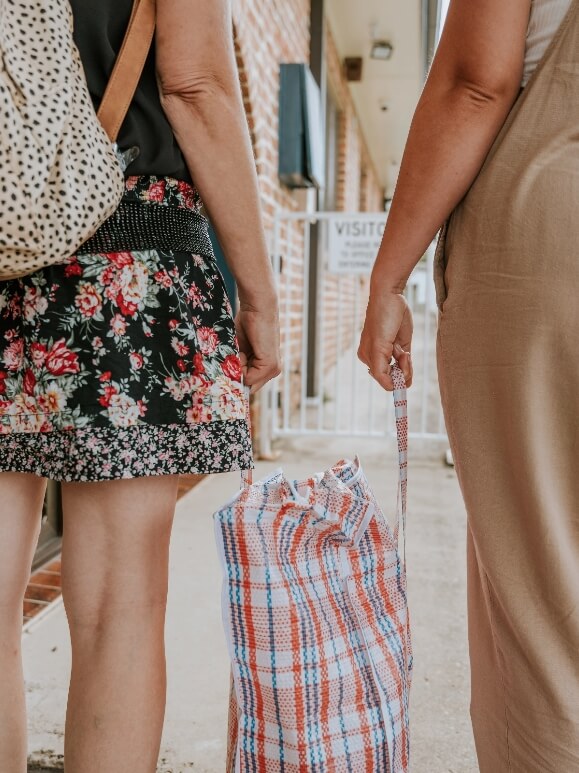
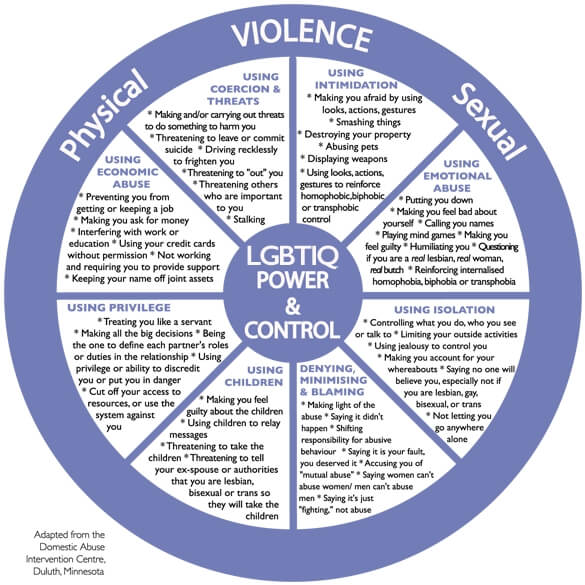
LGBTIQ+ People
Most LGBITQ+ relationships are built on love and respect. Some relationships however, are built on abuse and control. When a partner or ex-partner tries to manipulate, control or dominate the other this is domestic and family violence.
The misuse of power and control can happen in any type of relationship and take many forms. Such forms include emotional and psychological abuse, social isolation, financial control, physical violence and sexual assault.
Service providers take domestic violence in these relationships very seriously and treat those subjected to this type of abuse with respect and ensure that their confidentiality is respected.
Below are some helpful links:
- Acon
- Another Closet
- The Gender Centre
- Inner City Legal Centre’s Safe Relationships Project
- Q Life
- Twenty10
.
Older Women
Since many older women were born in a time when family matters were considered private and were not discussed openly, many older women may be reluctant to talk about their experiences or may consider the abusive behaviour acceptable. In the past, there were very few supports available for women, so many older women are likely to be unaware of the services they can access.
Some of the unique barriers faced by older women include:
- Feeling uncomfortable disclosing details of the abuse to others;
- Lack of awareness about services available or how to access them;
- Reluctance to leave their home, community and support network of many years;
- Some women may care for elderly relatives, dependent children or grandchildren which makes seeking help difficult and the prospect of moving very daunting;
- Older women may be financially dependent on their abusers and have no independent form of income which may discourage women from leaving;
- Some adult children may encourage their mothers to stay in the relationship or even blame their mother for the abuse.
.
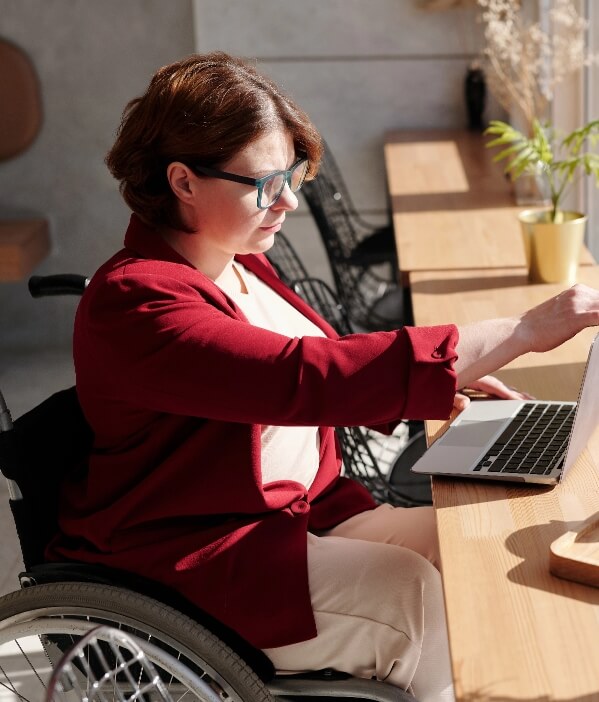
Disabilities
People with disabilities may be particularly vulnerable to abuse by family members, friends, partners and carers (paid or unpaid).
Women with disabilities may feel particularly trapped, powerless and isolated. Domestic and family violence can impact their ability to live independently and make decision in their own lives.
Violence against people with disabilities can include:
- Physical abuse
- Financial abuse (such as taking or controlling your money)
- Emotional abuse (such as calling you names, isolating you from friends and family, blaming you for the abuse)
Below are some helpful links:
- Domestic Violence Resource Centre Victoria – Information for Women with Disabilities
- R&R Disability Service
- Life Without Barriers
- Coffs Harbour Support Services
- Northcott
- CHESS Employment
- Community Care Options
.
Pets
Often women and children experiencing domestic and family violence do not leave a dangerous situation because the perpetrator threatens to harm their family pet or livestock.
Fortunately, there are organisations who provide short-term accommodation options for animals affected by such circumstances. With their pets safely in foster care, women and children are more likely to secure safety for themselves. Once living safely, women and children can then be reunited with their animals.
Your pets can stay safely at RSPCA NSW – Community Domestic Violence Program
Email: safebeds@rspcansw.org.au
Phone: (02) 9782 4408
